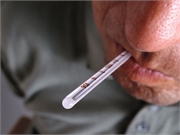
The coronavirus pandemic has caused a worldwide shift in the way people live, placing many in self-imposed exile to prevent the spread of the contagion. But it’s important to remember that four of every five infected people will have mild symptoms, perhaps so mild as to not be noticeable, experts note. “About 80% of people… read on >






























